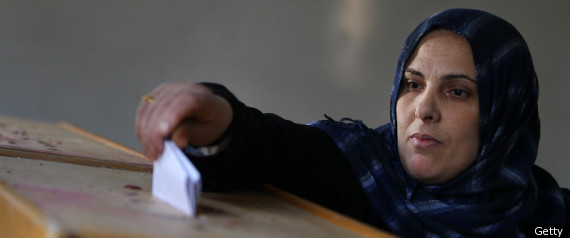After the first of three rounds of voting held in Egypt this week, candidates associated with the much maligned Muslim Brotherhood won a not-so-surprising 40 percent of the vote. What was surprising, however, was that another 25 percent was carried by candidates more conservative than those belonging to the Brotherhood. While these results are not yet official and only include a third of the country, they pose a significant question to the US: if the Brotherhood's Freedom and Justice Party is the party that we love to hate, what does that make those that are more fundamentalist?
Some of the policies espoused by the more conservative Salafist candidates have a decidedly theocratic tone to US ears, especially the creation of council to advise the parliament on the compatibility of legislation with Islamic law. While it does seem reasonable that propositions such as these will be moderated somewhat through the give-and-take that characterizes a functioning democracy, no one is sure where the lines of compromise will be drawn. The FJP is running primarily on an anti-military rule platform and pledges to work toward this end while seeking to preserve the individual freedoms of the electorate.
It is unknown where this new government will fall on the issues that are important to the US, or even what exactly those issues will be. While its opinion on Israel will without a doubt be critical, there are likely to be a number of other issues that will arise in the next four months that will cause the US to see the new Egypt as either a friend or foe in the region and formulate an appropriate policy.

No comments:
Post a Comment